« November 2013 | Main | January 2014 »
December 31, 2013
Manchester, England
Holden Oliver may be seen strolling to and from one of the Peter Street hotels all this week--but he won't say which one. He likes Manchester but "it's a mean old town to live in by yourself." Wonderfully gritty and real, this ancient second city once had an economic school of thought named after it, via England's Prime Minister Benjamin Disraeli. Poet Carole Houlston in "Manchester": "Lowry-loving/Boundry shoving/Cottonmilled.../Bomb-rocked/Unbroken..."
Mean Town Blues
Posted by JD Hull at 12:26 AM | Comments (0)
December 30, 2013
Cummer Gallery: Rombouts's "The Concert".
 "The Concert", c. 1620, Theodoor Rombouts (Flemish, 1597-1637).
"The Concert", c. 1620, Theodoor Rombouts (Flemish, 1597-1637).
Posted by JD Hull at 04:44 AM | Comments (0)
December 29, 2013
Rule Seven: "What's the client's stock price today?"
One of the most clicked-on of our annoying but 100% failsafe 12 Rules is Rule 7: Know the Client. Excerpt: "Take time out to learn the stock price, industry, day-to-day culture, players and overall goals of your client. Visit its offices and plants. Do it free of charge."

The firm's client has a factory or plant? If so, please visit it. Above: Nokia factory in Finland.
Posted by Holden Oliver (Kitzbühel Desk) at 12:03 AM | Comments (0)
December 28, 2013
Charleston
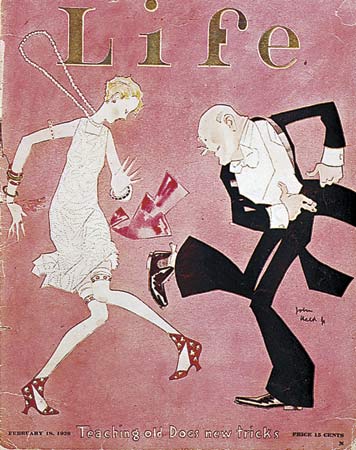
The Dialect. First, what about the accent you hear there? That regal way of speech? You're in South Carolina, of course--but the speech you hear is barely "Southern". Most likely, experts say, it's a blend: of Gullah spoken by African Americans, and of English spoken by Europeans, over 300 years ago. Linguists love it, and you still hear it in the streets, especially "South of Broad".
The Dance. It was popularized by a song and its accompanying footwork, "The Charleston," by James P. Johnson in the Broadway musical "Runnin' Wild" in 1923. Like the unique Charleston dialect, the Dance goes way back, too. It's been traced to descendants of slaves who lived on islands off the coast of Charleston and in the city itself. Thought to have been first performed locally around 1903.
Posted by JD Hull at 03:59 AM | Comments (0)
December 27, 2013
The Art of 'Subsequent Remedial' Advice.
 (2).jpg)
The Tyrolean Mrs. Oliver can fix anything.
If you are truly service-driven for corporate clients, you live it, breathe it, get it. And all your employees do. It's not a ruse you lay on clients to get new work through the door because you need a new one-night stand to make ends meet, or because it sounds good (i.e., you and yours are could care less about clients, and are in fact the "Eddie Haskells" of client service; yet "client service" must be in your promotional materials and it's cool these days to make even specious noises about it). Instead, you know that "doing the work is marketing". For you, keeping good clients is a passion, preoccupation, a religion. It's not just for show.
Here's an idea for lawyers who are serious about service. In many business litigations your firm has opportunities to isolate and bring to the client's attention "areas for improvement" highlighted in litigation. Your trial lawyers make mental notes about how lawsuits either arise or are made complicated and expensive by conditions, procedures or documents which need corrective action at the client's shop. These defects usually lurk unnoticed in day-to-day business practices, often obvious to the client's rank and file employees. It could be: a confusing employee handbook, a potentially faulty environmental storage practice, ambiguous language in a surety or insurance document, and even a culture or specific office location of the client which which seems ripe for workplace discrimination claims.
You get the idea.
So early on in the engagement, inform your general counsel or client rep about the problem or imperfection, and tell her that other departments in your law firm would be glad to help outline the problem in detail and/or solve it. If the client doesn't need or want your help to fix the problem, fine. The point is that you are looking out for your client in the long-term--in overall operational areas of its business--and your firm cares enough to say something and offer to help.
Everybody wins when you help clients address systemic issues presented by litigation. No insincere gimmicks here: just alert and useful lawyering which, after all, is your real marketing tool.
(from past posts)
Posted by Holden Oliver (Kitzbühel Desk) at 11:59 PM | Comments (0)
December 26, 2013
Rule 2: Customers and Clients are the Main Event--not you, your employees or your profession.*

Western professionals talking shop.
Rule Two: The Client is the Main Event.
We all know that clients pay our fees, give us interesting work, and that we have professional, financial and fiduciary duties to clients. We tell clients they are "everything" to us. But is it true? Is the notion that the client is the main deal chiefly something we eagerly tell our clients (and ourselves) while we pitch for work? My sense is that lawyers, except on a strictly marketing and PR level, and even with the best clients, generally forget that and won't create what quality improvement guru W. Edwards Deming years ago called a "constancy of purpose" about true service.
So Rule Two becomes the obvious "yeah-of-course-our-firm-knows/does that" rule that may get more lip service than actual delivery in all the details of our work for clients. If client (or customer) "primacy" were really the organizing principle for everything we do, isn't that in our interest, too? Doesn't that mean that the work is better, law firm staff and attorneys are pulling in the same direction, morale is good, we spend less time and money on marketing, we keep good clients and we attract new ones?
And if we really get it, are really we doing it?
*Is there anything more myopic or prissy than lawyers who constantly talk about the "integrity of the Profession"? Suggestion: Start with customers; build your integrity from there.
Posted by JD Hull at 02:36 PM | Comments (0)
December 25, 2013
Merry Clayton To All.
Posted by JD Hull at 11:53 PM | Comments (0)
Heidelberg Schloss
.jpg)
By Jacques Fouquières, Hortus Palatinus, (before 1620). Heidelberg Palace, gardens and terracing.
Posted by JD Hull at 11:17 PM | Comments (0)
December 24, 2013
Cyber-Speakers' Corner: "Merry Christmas, Ya' Bastards."
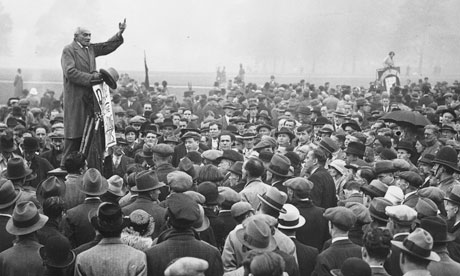
Three Decembers ago on a Sunday, I did hear this holiday greeting from a guy in the Northeast corner of Hyde Park when he felt his entreaties to about 20 people to help him start a new UK political party had fallen upon unsympathetic ears. No one bought his idea... But he was fair and honest, as was his audience, and of course hilarious. But West London's Speakers' Corner is generally lot more civilized, fair and regulated than Cyber Corner, a/k/a the Internet. We still need some rules. One holiday wish we have for you on the Net in 2014:
(1) Don't let anyone tell you What to Say/Write.
(2) Don't let anyone tell you NOT What to Say/Write.
(3) Think your own thoughts. Avoid Lemming-Think.
(4) Check your facts. Carefully.
(5) Don't purposely misrepresent the views, or speculate about the motives, of others.
(6) Be aggressive--but try to have some class.
Merry Christmas, Folks.
Posted by JD Hull at 11:17 PM | Comments (0)
December 22, 2013
The First Franchisor: Singer Corporation.
The first formal business format franchise is an honor that belongs to Singer Corporation. In 1851, Isaac Merritt Singer and lawyer Edward Clark started I.M. Singer & Co. in New York City. In the mid-1850s, Singer started to use franchise contracts to distribute its sewing machines over the then-widespread and disconnected geographic areas of the U.S. The company is now headquartered in La Vergne, Tennessee.
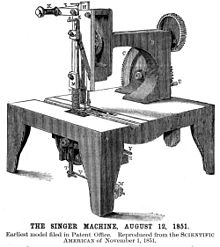
Posted by JD Hull at 01:06 PM | Comments (0)
December 21, 2013
Solstice: For Our Druid Friends.

Posted by JD Hull at 12:00 AM | Comments (0)
December 20, 2013
Think like a client. The trick now is to win cheap.
For an experienced client, the cost of the lawsuit is part of the "victory" analysis. So is closure--or just getting it over with.
In America, the state and federal trial courts of record--rather than arbitration panels or mediation (which we Americans group together under the heading Alternative Dispute Resolution, or "ADR")--are still the "poison of choice" to resolve commercial disputes. That is likely to be true for a long time.
True, also, that our courts in the U.S. give even civil litigants (a) due process rights, (b) pre-trial access to the discovery of evidence, and (c) opportunities to present evidence at trial--each on a scale the world has never known before. While that "experience" is often tainted with inefficiencies and waste, it is at least predictable. Litigants generally accept the risks of what can happen to them--through flukes, brilliance, or the triumph of moral order in the universe--in American courts.
However, the "bad news" here is also considerable--and, of course, predictable. Business litigation in the courts is (a) extremely expensive, (b) highly disruptive to clients reps and witnesses, many of whom are managers or workers, and (c) very lengthy from start to finish. Even the "winning" client generally loses--and loses a lot in terms of resources and time.

However, our enduring global recession (or "new normal", perhaps) is certainly a good time for business clients to push for ADR (including mediation) over litigation. Not because ADR is cheaper, faster and better; often it's clearly not advantageous in any of those three ways.
It's simply because the cases you defend in struggling economic times can be more marginal from a merits standpoint. And that's exactly where ADR can really help. Even if you don't love ADR in America, or you were trained for full-blown trials.
Say you've just been handed a case to defend in an American court that is poorly-grounded, weak or otherwise insubstantial. A weak employment discrimination or wrongful discharge action (I call it the the "un-classy firing" suit). Or a flimsy business case dressed up as an unfair competition or infringement action (the "it's-weak-but-let's-see-what-happens" suit). Down-on-their-luck David & Son, with hungry counsel, v. Flatfooted Goliath, Inc., your client and a deep pocket.
The stars seem to be aligned in Goliath's favor.
Not only does your client Goliath have more resources, and the case filed against it is transparently contrived and weak, you are assigned to a real judge. Your firm is before a scholarly, honest, sane jurist with people sense, and loved by all. Your research suggests that the judge is business-savvy in rulings, and takes a dim view of iffy cases.
So you think you will win your case on a dispositive motion (and you do, eventually). You are right on the merits--and any law professor in the U.S. would agree with you. The "case" your long-time GC just handed you is silly, right? And a piece of cake. A cinch. Almost beneath you, you tell yourself. An "easy win", right?
Well, think again, Skippy.
Your GC couldn't have hired you to do anything more difficult. "Winning" just took on a new and more complicated meaning. Because now--especially if you were just handed a defense counsel's dream and stone "winner" of a case--you will have to work harder, and be smarter, than if you were defending a good faith or meritorious suit in which your client had the lion's share of bad facts.
The trick now is to win cheap*. An easy-to-win business suit handled by the most efficient defense counsel on earth can have defense fees and costs well over $100,000, even with minimal or no discovery. You really think that your GC or client rep will be happy the day you tell him or her about your great win on all counts based on your brilliant Rule 12(b)(6) or Rule 56 motion?
Don't bet on it. For the experienced client, the cost of the lawsuit is part of the "victory" analysis. So is "closure"--or just getting it over with. In a down American economy, litigation tends to increase. More suits are filed. And in my view clients and their plaintiff's lawyers file more questionable suits, i.e., ranging from Rule 11 violations and frivolous to iffy and wasteful. Employee and business nuisance cases are a big chunk of those filings.
A good arbitration panel or mediator will cut to the quality of the suit and its likelihood of success quicker than even the best American judges, who often feel obligated to give bad and iffy cases a wide berth. And good judges understand the problems of the business community and the utility of arbitration and mediation. Get jurists on your side in your attempt to drive iffy cases into ADR.
*Better to have "no lawsuit" than a great case or defense.
Posted by JD Hull at 12:00 AM | Comments (0)
December 19, 2013
Don't compete on price. Don't compete on price.
In this economy, the great corporate clients we always wanted at our mid-sized firm will now come to us for our lower rates. They will never leave us. There will be Sweetness, Light and Good Crops.
--An over-served lawyer, Trevor, at an American last night.
No. Probably not. No. Not ever. Right now, it's tempting--but resist the urge to lure new clients with lower price or rates. Clients who come to you for price will leave you for price. Think about value first, price second.

Above: Trevor sober.
Posted by Holden Oliver (Kitzbühel Desk) at 12:23 AM | Comments (0)
December 18, 2013
Amsterdam: Authentic, Sane, Healthy, Smart, Fun.
Like Tel Aviv in Israel, Amsterdam's nickname (among others) is Mokum, a Hebrew word for "place" or "city", due to its historically large Jewish population. My favorite European city, Amsterdam is poorly understood by Americans, often half-blinded by Victorian and morally pretentious views of real life. This city is about beauty, great art, great food, healthy free-thinking people, and genuine class--not just the Sex Museum, social welfare, cathouses along canals in the de Wallen, smoking hash at the Betty Boop coffeehouse, and other indulgences, percs and pleasures. Cosmopolitan, the Dutch like other languages. In the Netherlands, the official ones are Dutch and, in the north, Frisian (which many believe is the closest thing to Old English still spoken). But about 85% of the total population has basic knowledge of modern English. German and French spoken here, too.

Posted by Holden Oliver (Kitzbühel Desk) at 11:59 PM | Comments (0)
December 16, 2013
Beyond King and Country.
A wise man's country is the world.
--Aristippus (435-360 BC), as quoted by Diogenes Laertius, Lives of Eminent Philosphers

"There is hope. I see traces of men." Aristippus was shipwrecked on the island of Rhodes in the Aegean Sea. He and his fellow survivors did not know where they were or if the island was inhabited. But he sees geometric figures drawn on the sand.
Posted by Holden Oliver (Kitzbühel Desk) at 12:59 AM | Comments (0)
December 13, 2013
Aldeburgh

More precisely, it's in Suffolk, East Anglia, England, on the coast, and jutting out into the North Sea. Due east: The Netherlands, where lots of the DNA here originated over 1000 years ago. Pronounced "All-bruh". I've been here four times, starting in 2003. If you are in London, and you have an extra day, do something different and drive or take a train northeast to Aldeburgh, a Suffolk secret well-kept from Americans. The home and muse of the great Bertie Lomas, a much-loved and gifted poet, writer and editor who died at 87 in 2011. And if you are a beach lover--or a merely a lover of the beach--you and yours would do well to heed the little round stones beneath you.
Posted by JD Hull at 08:10 PM | Comments (0)
December 12, 2013
Doc Holliday: "Where you goin' with that shotgun, Virgil Earp?"
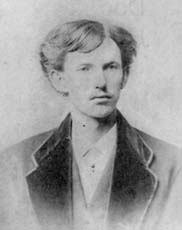
John Henry Holliday in 1872.
He despised and, whenever he could, preferred to engage bullies. He had a knee-jerk resistance to following the crowd in anything. He thought for himself. He argued with everyone (including the Earp family) about everything. He liked underdogs.
The Gift of Loyalty, Being There, Standing Up. Nine-tenths of what has been said or written about him, including Hollywood's versions, is hype. Doc Holliday wasn't a great shot, or anything like an artist with that big knife he carried around with him. He didn't kill scores of people. He wasn't drunk 24/7. Not everyone hated or feared him. Yes, he could be as mean as a snake.
But when you clear away the Old West myth, he's still a tragic but compelling and often admirable loner. Biographers do agree that John Henry Holliday (1851-1887) was fiercely loyal and could be counted on to stand up for friends--not just the Earp family--and a few others who might need a bold if flamboyant assist.
To be honest, I wish more lawyers--too many of us are cowards and wimps--had Doc's pluck, his ever-readiness to "be there" for you and his fine madness. Most of us? We don't come by strong character, action or decisiveness naturally. Face it: as a group, we are barely above-average Dorks. We've raised holding back, and even common cowardice, to an acceptable art.
Like many lawyers-to-be, Doc grew up comfortably and was well-educated. He was raised in Georgia as a popular and bright youngster in a close, supportive and fairly well-to-do family in which, among other things, he learned about card games. His clan's fortunes were badly set back, but not destroyed, by the Civil War and the subsequent occupation by Union soldiers.
He started out adulthood in 1872 as a 20-year-old graduate of a fine dental surgery school in Philadelphia. But Holliday caught Tuberculosis from either his stepmother or a patient in his first year of practice. At 22, still the beginning of his dental practice, he was diagnosed as "consumptive"--and told that he had but a few months to live.
This shock, coupled with what some researchers believe was a star-crossed love affair with a first cousin, made Holliday move West for his health. Dentistry quickly took a back seat to gambling. He became a binge-drinking rogue with only a few friends, professional gambler, resident wit, expert womanizer and prankster who was somehow menacing to most of the people he met, even at a weight of around 140 pounds. Although he was clearly an emotional and in some respects volatile man, most reports have him clear-headed, quick-witted and even strangely calm in violent situations the moment they erupted.
This was a bit of Social Critic and Philosopher in Holliday, too. I've read three bios now on Doc. (The best, to me, is Doc Holliday by Gary L. Roberts, John Wiley & Sons (2006)). Even when drunk, or when he had lost his temper (both happened a lot), Holliday was clear-eyed in a number of respects.
He wouldn't beat up on weaklings. He despised--and, whenever he could, preferred to engage--straight-up bullies and self-hating creeps. He had a knee-jerk resistance to following the crowd in anything. He thought for himself; he argued with everyone (including the Earp family) about everything. He liked underdogs. And even when cornered--or was about to be hauled off to jail (also happened a lot)--he had something caustic and often incredibly funny to say.
Tuberculosis did finally claim him in Colorado at age 37. There is no end to the lore about what he did and said, or to the speculation about what made him tick in those last 15 years. But even the most sober historical sources on Holliday do agree on one thing. Over and over again, if a friend--in a few cases a total stranger--needed him, he was there immediately.
Instinctive. No hesitation. An angry yet adept explosion. None of the pathetic step-by-step "analysis" of modern white collars that should shame us deeply every time and never does. You didn't need to ask Doc to help. Doc didn't need to think about it. He just did it.
Posted by JD Hull at 02:59 AM | Comments (0)
December 11, 2013
Jurywork
Don't tell me the moon is shining; show me the glint of light on broken glass.
--Anton Chekhov (1860-1904)
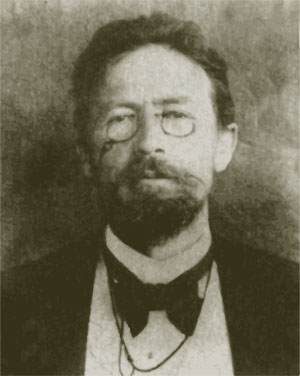
Posted by JD Hull at 11:59 PM | Comments (0)
December 10, 2013
CPR's Global Accelerated Arbitration Rules.
Choose to use them. They're aggressive and "get-it-done", in both letter and spirit. Global Rules For Accelerated Commercial Arbitration, of the CPR Institute. Best two features: (1) The default position is a sole (one) arbitrator. (2) Arbitrators should make award ASAP and in any event within six months of formation of the tribunal.
![CPRLogo[1].gif](http://www.whataboutclients.com/archives/CPRLogo[1].gif)
Posted by JD Hull at 11:59 PM | Comments (0)
Time to Wake Up, Campers: New Haven, 1967.
Posted by JD Hull at 04:39 PM | Comments (0)
December 06, 2013
Robert Frost: Work-Life Scottish.
The difference between a job and a career is the difference between forty and sixty hours a week.
--Robert Frost, Poet and Yankee. He won the Pulitzer Prize four times.
.jpg)
Posted by Holden Oliver (Kitzbühel Desk) at 11:59 PM | Comments (0)
December 05, 2013
Tell Clients What They Can Do, Too.
I find myself doing it more than I would like--especially with clients with newer businesses or in emerging industries. I've just laid out some legal or regulatory infrastructure that, to them, throw up roadblocks to their plans. And I do this especially on the phone. I hear myself saying "no". Point: When you talk to clients, protect them. Make them safe. And be strong on those "no" points. But tell them what they can do, too. Make it part of every conversation.
Posted by Holden Oliver (Kitzbühel Desk) at 03:14 PM | Comments (0)
December 04, 2013
Writing Well: Jack London on Inspiration.
You can't wait for inspiration. You have to go after it with a club.
--Jack London (1876-1916)
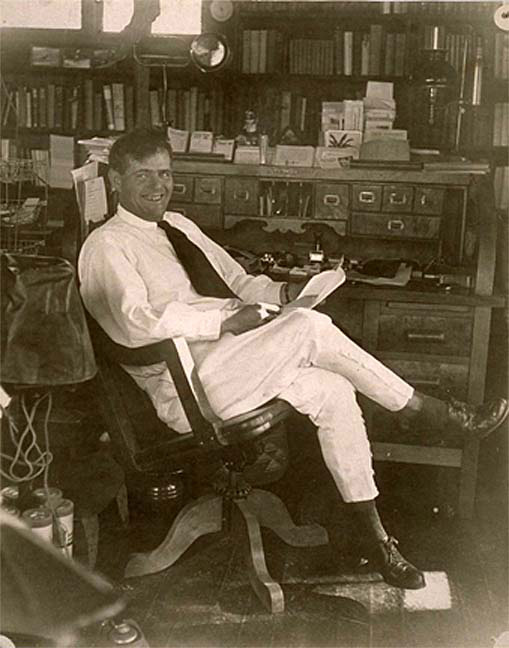
Posted by JD Hull at 11:59 PM | Comments (0)
December 03, 2013
How do you get more work from GCs and in-house counsel at great companies?
It's hard yet not complicated. You ask them. You pick up the phone and ask for more work. Or, in some cases, you e-mail. You persist--but do it all with taste and sensitivity to their schedules and burdens. Try not to be a dork.
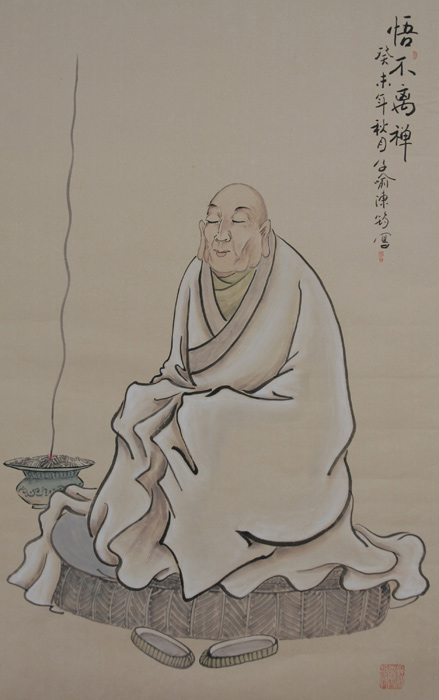
"Zen Master", by Chen Jun (1935-), 2003.
Posted by JD Hull at 11:59 PM | Comments (0)